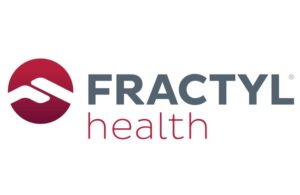 Fractyl Health announced today that six-month data from a study of its diabetes reversal tech demonstrated improvements in glucose control.
Fractyl Health announced today that six-month data from a study of its diabetes reversal tech demonstrated improvements in glucose control.
Interim data came from the human clinical experience in Fractyl’s Revita-T2Di long-term, open-label cohort. Revita, a procedure that remodels the duodenal lining via hydrothermal ablation, has FDA breakthrough device designation. The FDA approved an investigational device exemption (IDE) trial for Revita in April 2022.
Lexington, Massachusetts-based Fractyl aims for Revita to improve glycemic control and eliminate insulin needs in type 2 diabetes patients. These patients currently suffer from inadequate control on long-acting insulin. Interim data not only showed improved glycemic control but also stronger metabolic control and reduced insulin requirement.
The clinical assessments reported by Fractyl observed nine treated patients followed through at least six months. Fractyl’s T2Di study enrolled patients with inadequately controlled type 2 diabetes with an HbA1c of 7.5%-9.5% despite long-acting insulin therapy.
Prior to the study procedure, all antidiabetic agents other than metformin and basal insulin were washed out for at least eight weeks. An additional four-week run-in period followed, too. Post-procedure, all patients discontinued insulin and received only metformin and newly added empagliflozin.
Five different endoscopists across four centers successfully completed all nine procedures in the study. The average procedure time totaled less than one hour in the outpatient endoscopic procedure. Investigators observed no device-related adverse events to date. One subject discontinued participation due to reasons unrelated to Revita, Fractyl noted.
Mean HbA1c improved by 1% from a baseline of 8.5% to 7.5%. All subjects reduced their daily insulin dose from baseline. Three of the eight subjects followed through 24 weeks did not require ongoing insulin therapy. Those same patients required insulin therapy prior to study participation. Additionally, the mean total body weight improved by 6.8% from a baseline of 100 kg.
“We are encouraged by the 24-week data from this clinical experience with Revita in showing improvements in glucose control and weight with a significant reduction in insulin requirement,” said Dr. Geltrude Mingrone, professor of internal medicine at the Catholic University, Rome, and professor of diabetes and nutrition at King’s College, London. “Aside from bariatric surgery, physicians do not have accessible tools today to improve glucose control and reduce drug burden. What is exciting about this cohort is that it shows Revita may offer the potential to not only improve glucose control for patients with advanced disease but also potentially help to reduce or eliminate their need for insulin.”
Fractyl plans to offer updates on the extended follow-up of its T2Di cohort later this year. That includes 48-week durability data after a single intervention.

